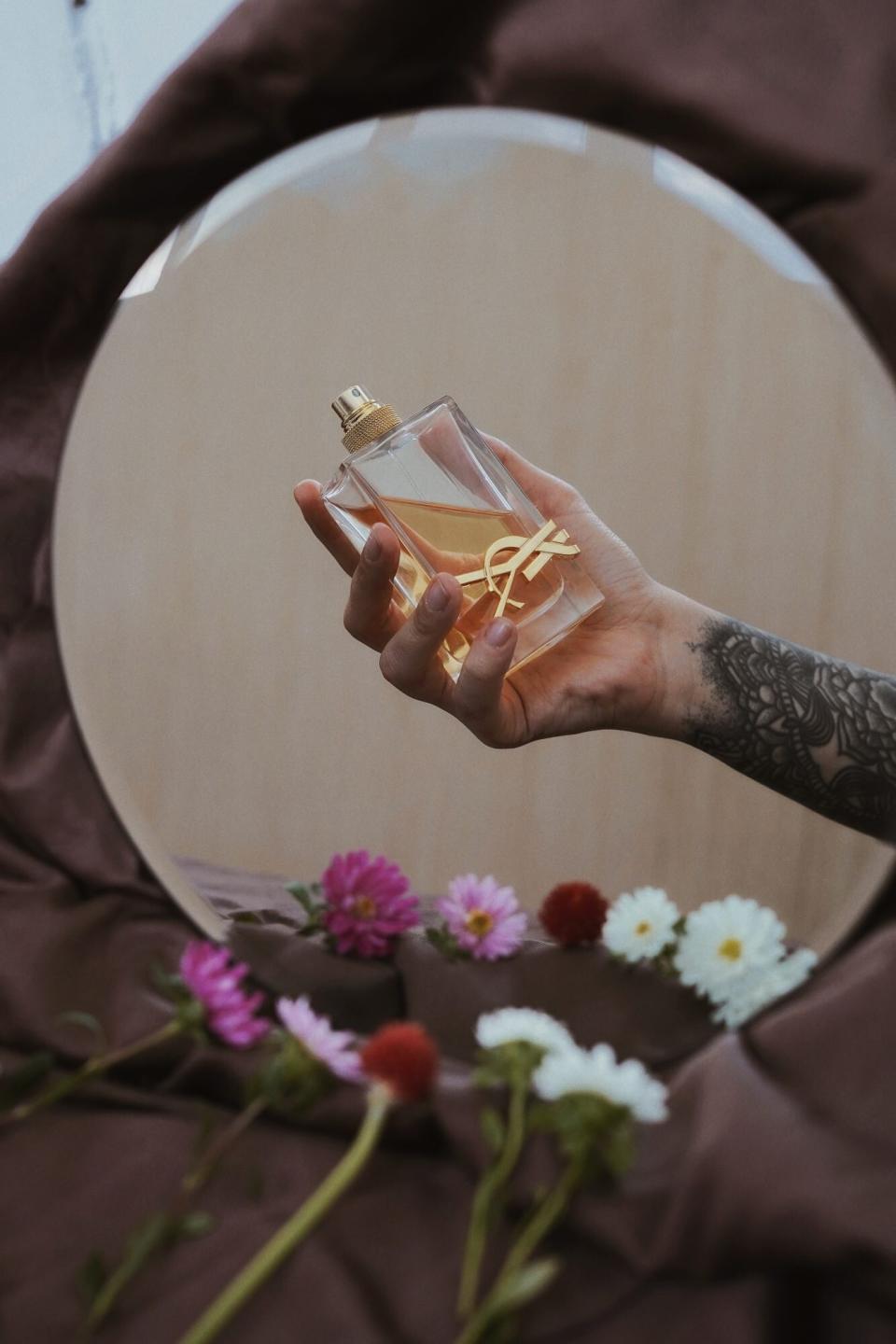An Expert's Guide to Finding Your Signature Scent
How you dress can reveal a lot about your personality, as can your makeup and hairstyle. However, while a power suit and red lip can be spotted across the room, fragrance is a much subtler, much more intimate way of revealing the type of person you are — or aspire to be.
To others, your signature scent is a subconscious way they'll remember you by and how they'll perceive you. To you it can be a strong factor in determining what kind of day you're going to have and what type of mood you want to set. Your signature scent, regardless of who it's for, is unabashedly yours.
Choosing a signature fragrance can take a while, especially considering the thousands of options on the market. And while having a plethora of options, it can be a relief to streamline your routine for a minimalistic, more intentional fragrance wardrobe. So, if you prefer to have one or two signature scents that you'll go back to time and time again, rather than playing fragrance roulette on any given day, and are stumped on how to pick a perfume that feels perfect, we're here to help.
RELATED: Bespoke Fragrances Are the Ultimate Luxury — Here's How They're Made
What's the best way to find your signature scent?
1. Start with fragrance families. "Understanding the families is just like understanding genres in music," says David Moltz, co-founder of D.S. & Durga. "You want to know the difference between hip-hop or baroque when you listen to something — it's nice to know what is floral, fresh, woody, etc."
Some perfumes dabble into more than one fragrance family, but knowing what notes you gravitate toward can quickly narrow down your search for a signature perfume. Florals tend to be more feminine and mature, spicy fragrances tend to be warmer and sultrier, woody scents are often earthy and masculine, and fresh perfumes are often citrusy and lighter. Of course, every perfume uniquely blends notes and accords, so while a fragrance may have a woodsy top note, it could also contain fruity ingredients for an olfactory cocktail, but knowing what overarching fragrance family you like is the first step toward finding your signature scent.
2. Consider trends, but proceed with caution. Palo santo had a big moment a few years ago, and green tea is beginning to make its way into current finds. As with fashion, trends come and go, so consider that when fragrance shopping. "Trends are a helpful cue to what is going on, but like anything else as you learn what you like, you learn to trust your own instincts," echoes Moltz.
The same goes for cult classics. While we've all loved Dolce & Gabbana's Light Blue and everyone on TikTok is crazy for Bacarrat's Rouge 540, don't let the hype cloud your judgment. While these tried-and-true fragrances have stood the test of time and will continue to reign, there are so many more options to be discovered.
3. Spend time with it. Perfumes smell differently on everyone, thanks to our unique skin chemistry, so how it smells on a sampler paper won't necessarily how it settles into your skin. Before you purchase a full-sized perfume, use a sampler or a travel-sized bottle and sit with the fragrance for a week or so, as Bee Shapiro, founder of ELLIS Brooklyn, points out our chemistry can change day-to-day. "Sampling should be a key part of the experience, [so] try a few and then see," she says. "Allow yourself to live with a new scent a bit before passing judgment."
Fragrances lean on the pricier side of beauty products, and while we're all for you purchasing an upscale fragrance if you fall in love with it, we also want you to know you like it before you make an investment. "Sample sets are a great way to discover multiple perfumes," suggests Moltz. They're also a great way to experience several scents for a few days before deciding to commit.

Unsplash
4. Consider how you want your signature scent to make you feel. Do you want to come off as playful? Do you want to feel sexy? Consider this as you take turns sniffing between scents of leather accord and peony before settling on the one. "It should make them their ideal self — this sense of recognition with a drop of aspiration," says Shapiro. "When you spray on the scent, it should feel not only that this scent is who you are, but who you want to be."
5. Take into account how long you want it to last. When you browse through department stores and stumble through eau de parfums, eau de toilettes, and more, it's important to know the difference before heading to the cash register. These names allude to the concentration of fragrance, which goes hand in hand with its longevity and retail price.
Eau fraiche has between one and three percent concentrated perfume oil and generally lasts less than an hour. Eau de cologne has been two and six percent oil and lasts up to two hours. Eau de toilette can have anywhere between five and 15 percent oil and lasts roughly three hours. Eau de parfum, which Moltz says is the standard strength of perfumes, contains 15 to 20 percent oil and lasts between five to eight hours. Finally, there's pure parfum, which has anywhere between 15 to 40 percent oil and can last up to 24 hours.
